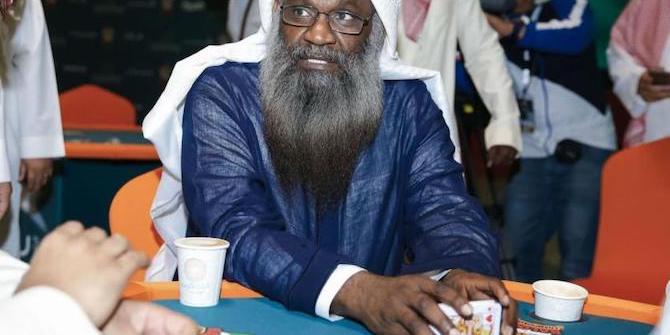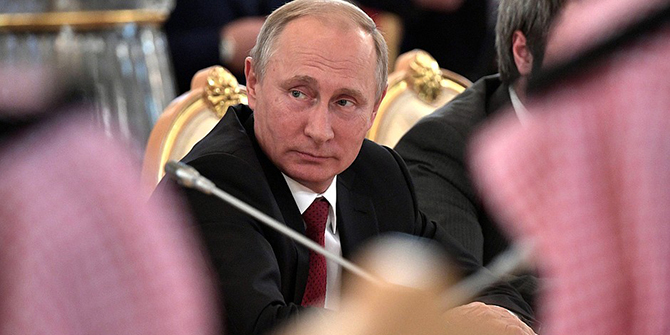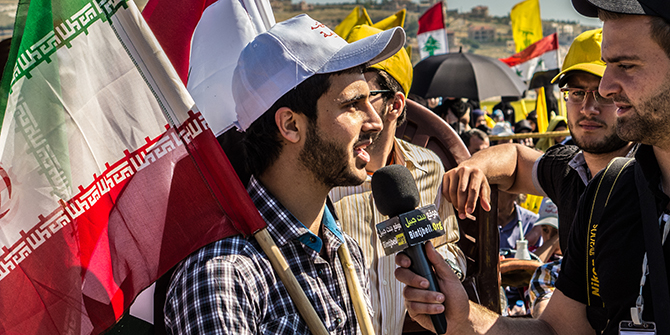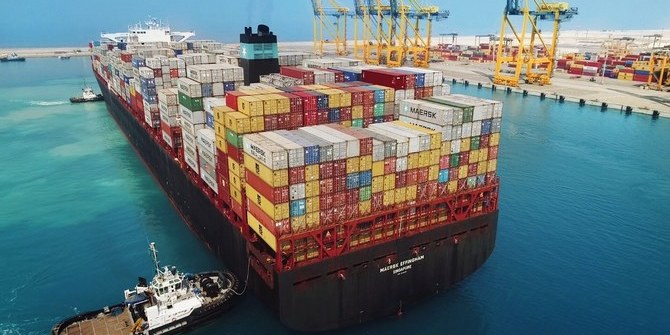by Courtney Freer

Vision 2030’s focus is to mainly move the Saudi economy away from its dependence on oil. Nonetheless, any plan so ambitious will undoubtedly have social – and potentially political – consequences. The degree of social change, of course, depends on the extent to which portions of the vision are implemented in practice – something which is being called into question after King Salman’s recent restoration, at the end of April, of financial allowances for civil servants and the military that were previously stripped.
Riyadh’s pursuit of diversification is by no means new; the first ever Saudi Five Year plan was drafted in 1970, with McKinsey having set up shop in Riyadh in 1957. Nonetheless, progress has been hindered – largely by two main structural blockages, which remain in place today. The first of these obstacles is the fact that almost everything in the Saudi economy has been directly or indirectly fed by state spending. In a state like Saudi Arabia, where the government remains the primary employer of two-thirds of the workforce and where private sector incomes account for only four percent of GDP, privatisation will have to be managed through that same overstaffed and inefficient public sector. Vision 2030 strives to outline government-encouraged privatisation, with the government remaining the primary investor and developer by using money from the IPO of Aramco to finance diversification efforts. Simultaneously, the plan ramps up the role of the Saudi government in citizens’ social life, thereby enforcing and even expanding the rentier bargain, rather than undermining it.
A second structural shortcoming in Saudi Arabia is the ruling family’s centuries-old alignment with the Wahhabi ulama, which requires Al Saud to respect the highly conservative and textualist understanding of Islam to maintain religious legitimacy. There are some indications of potential change in the relationship between state and ulama, however. In April of last year, Deputy Crown Prince Mohammad bin Salman stripped the religious police of their power to arrest, urging them to act ‘kindly and gently’ in enforcing Islamic rules. Still, the fact that the authority continues to exist is important in and of itself and has played a part in stymying development of the Kingdom’s cultural and entertainment sector – something that Vision 2030 hopes to remedy.
The Vision expresses the goal of increasing household spending on cultural and entertainment activities from 2.9 percent of income to 6 percent, yet fails to specify what exactly will be allowed, with Wahhabism firmly against most forms of entertainment like cinema and music. The Vision allows for the creation of more than 450 registered ‘professionally organised amateur clubs’ to expand culture and entertainment options in the Kingdom by 2020. Through the national Daem programme, this network of clubs is charged with enhancing the quality of cultural activities and entertainment. This goal seems surprisingly cosmopolitan in a state as historically closed as Saudi Arabia.
Mohammad bin Salman has also established an Entertainment Authority, again adding more layers of government-managed bureaucracy. This body has planned its first activity and has already run four sold-out concerts in Saudi cities, though they tended to be segregated and solely for men.
For example, the authorities organised the three-day Comic Con event in Jeddah in February. Though women were supposed to be segregated from men, they ended up mixing, with a few of them even dancing (an activity that Wahhabi ulama prohibit), in the same hall. Some clerics complained about this event, pushing the Entertainment Authority’s Ahmed al-Khateeb to confirm that the Entertainment Authority has rejected as many as 150 activities which it considers ‘violating Islamic tenets’.
Nonetheless, backlash is likely to continue. Grand Mufti Sheikh Abdul Aziz al-Sheikh told Al-Majd TV as early as January that concerts and cinemas were harmful and cause immorality. Shaykh Abdul Aziz and other conservative scholars have been cautious not to confront the ruling family head on, targeting instead the performers or the Entertainment Authority. For his part, Shaykh Abdullah al-Mutlaq, a member of the Council of Senior Scholars, called for a referendum, as he believes that the majority of Saudis oppose concerts.
The development of the Saudi entertainment sector does not appear to be slowing, however. Just last month, sovereign wealth fund The Public Investment Fund announced its plans to develop a 334 km2 entertainment city in al-Qidiya, south of Riyadh by 2022. The Saudi government, then, while aiming to decrease its involvement in the economic sphere, appears hopeful of increasing it in the cultural and social realms by creating its own civil society sector through which to manage both the religious and more secular aspects of entertainment and social life.
Indeed, Vision 2030 is so detailed in its management of social life in Saudi Arabia that it includes the target of increasing the ratio of individuals exercising at least once a week from 13 percent to 40 percent. To this end, the General Authority of Sports did grant the first licenses for women’s gyms at the end of February. Though a target is set to establish a gym in every neighbourhood, the costs of using these facilities remain uncertain, so it is unclear how widespread the effects of such gyms will be.
In another major social development, the Vision sets targets for boosting Saudi Arabia’s hospitality industry by attracting 1.5 million tourists by 2020 and thus increasing revenue generated from tourism to 18 percent in the next 14 years. Meanwhile, visa costs have skyrocketed to around £500 for a single entry visa, excluding those attending hajj or umra for the first time as well as GCC nationals. The social impact of opening the Kingdom up to non-religious tourists would be significant. Still, Mohammed bin Salman himself has said that tourists would be only allowed into the Kingdom ‘in accordance with our values and beliefs’. It is unclear how the state will screen potential tourists or immigrants using such criteria, however, and it seems likely that most tourism will be restricted to other Gulf nationals or to the religious type. Indeed, in January, King Salman approved a substantial increase in hajj quotas, for both Saudis and foreigners.
The Vision also mentions the potential introduction of a green card system for expatriates within five years, yet its effects would not be widespread, as it would only be granted to investors and highly qualified experts. While this could boost investment and local consumption, it could also make the job market more competitive for locals if widely applied.
Also affecting Saudis’ ability to compete on the job market is the existing Saudi education system, which has been widely criticised for its concentration on rote learning and religious studies, instead of skills more relevant to the labour force. While reforms under King Abdullah concentrated largely on a scholarship programme to send Saudis abroad, the Vision calls for bringing at least five Saudi universities to rank among the top 200 universities worldwide by 2030. A programme called the National Labour Gateway (TAQAT), named in the Vision, is meant to determine which skills are needed in each economic sector; it also mentions a focus on vocational training and entrepreneurship and greater cooperation between the education system and private sector.
The Vision alludes specifically to increasing the percentage of women in the workforce from 22 to 30 percent by 2030, though it is unclear how exactly this would this happen. At present, women are restricted from working in unsegregated places, and there are persistent calls to place limits on how late they can work or in what types of institutions they can be employed. Further, with subsidies reduced, women who once were able to afford drivers may be less able to employ them. The removal, at the start of May, of the requirement for women to receive a guardian’s consent to receive state services could make the process of employing women easier.
In any plan this large (the transformation plan identifies 543 initiatives across 24 ministries at a cost of $72 billion), there are bound to be major social consequences – some of which are spurred by government plans and others that are merely the result of sweeping economic changes. In either case, such consequences depend on the extent to which and the speed at which the plan outlined in Vision 2030 is implemented.
Notably, this Vision remains very much linked, both politically and in the minds of most Saudis, to Deputy Crown Prince Muhammad bin Salman, (MbS), who, as the youngest member of the Saudi executive, seems to be self-consciously pushing for social change. Political commitment to the Vision has been affirmed through recent actions centralising power in King Salman’s branch of the family. Indeed, in April, one of MbS’s brothers was named Ambassador to the United States, while another was named State Minister for Energy Affairs. The creation of a new national security centre (once the purview of Crown Prince Mohammed bin Nayef) linked to the royal court, is also telling, especially since MbS serves as Defense Minister and Chief of the Royal Court.
This affirmation has come, despite backlash resulting from the state’s removal in September of allowances to civil servants and members of the military, with an outcry on social media and even calls for protests in four Saudi cities. The so-called April 21 Movement emerged, with aims of halting the IPO of Aramco, creating a constitutional monarchy, and restoring full powers to the religious police.
In the face of this opposition, a recent Saudi poll conducted by the government’s public opinion centre claims that 85 percent of the public would choose to support the government ahead of religious authorities on policy matters. It also states that 77 percent of those surveyed supported the Vision and that 82 percent were in favour of concerns attended by both genders. While not independently verified, Saudi Arabia’s under 30s, who amount for some 70 percent of the population, may be more embracing of the young MbS’s vision for social change than the older generation realises.







10 Comments